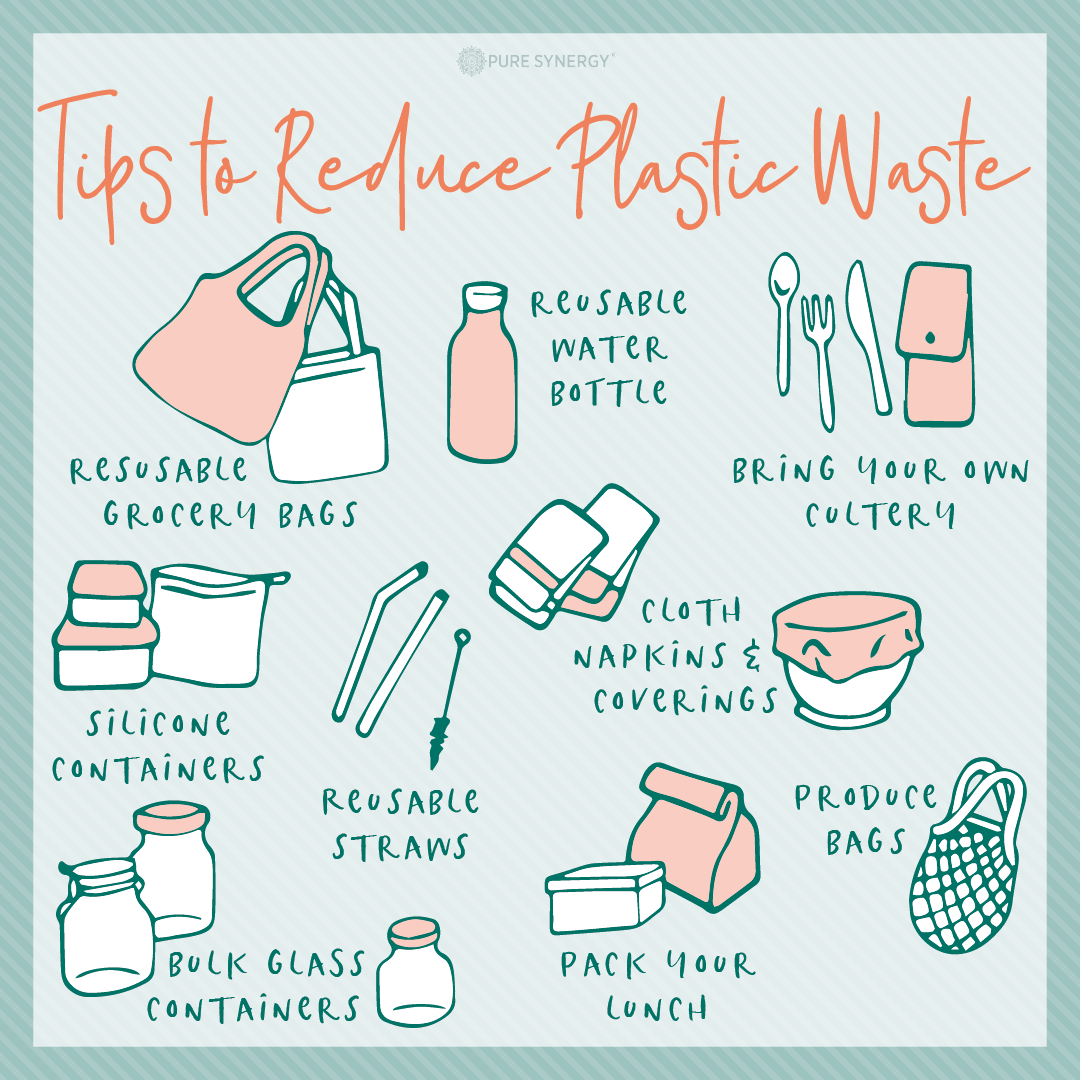Plastic pollution is choking our oceans and clogging our landfills. Of the more than 200 billion pounds of plastic produced globally each year, about 10 percent ends up in our oceans. Five massive garbage patches have accumulated across the world’s oceans where trash, 90 percent of which is plastic, collects as currents come together in enormous gyres.
This plastic contamination is particularly serious since it doesn’t biodegrade, but just breaks up into smaller and smaller pieces that end up getting eaten by marine animals. Scientists estimate that more than a million birds and marine animals die each year from consuming or becoming caught in plastic and other trash.
Plastic pollution is equally bad on land. In the United States, over 85% of plastic ends up in landfills, where it may take up to 1,000 years to decompose. A host of toxins within plastics such as BPA, phthalates, and dioxins, then leach into our soil and water and poison the ecosystems around them.
The negative effects of plastic on our planet couldn’t be clearer, but it can also be very bad for human health. The toxins within plastics leach into our food, especially if heated, and find their way into our bodies. Many of these toxins are endocrine or hormone disruptors that can cause a host of health problems.
The bottom line is that we’re drowning in plastic and we need to drastically reduce our use of this damaging substance. The good news is that it isn’t hard to do. Here are some small steps we can all take to reduce plastic in our personal lives and on the planet.
Buy In Bulk
Instead of buying food packaged in plastic containers, a great option is to bring your own reusable containers to stores that sell goods in bulk bins. Some typical foods sold in bulk are rice, nuts, grains, pasta, and beans. Once you bring these items home, you can store them in reusable glass jars and containers.
BYO Bags
Remember to not only bring your reusable grocery bags, but also reusable produce bags to the supermarket.
Dump Plastic Wrap


There are several innovative plastic wrap alternatives that let us ditch this common form of plastic. For example, products made of cotton cloth infused with beeswax and tree resin can be molded to fit over your plate or bowl.
Ditch Plastic Storage
Another kitchen staple is resealable plastic bags — which can be switched out for stainless steel or silicone containers. You can also swap out plastic food storage containers, like Tupperware®, with glass ones.
BYO Straw & Cutlery
It is estimated that in the USA, we use over 500 million plastic straws every single day. Take a wild guess where most of them end up. You guessed it, in our oceans. The same thing goes for plastic spoons, forks and knives. A great alternative is to bring your own stainless steel or glass straw everywhere you go, as well as bamboo or stainless cutlery.
Retire Plastic Sponges
Instead of cleaning your dishes with a plastic sponge, you can swap it out for a natural, biodegradable sponge or a reusable dishcloth that you can throw in the wash.
Chuck Plastic Children's Dishware
Many parents use brightly colored plastic dishes, bowls, and sippy cups for their children. That’s a bad idea considering the numerous chemicals that can leach out of them and into their developing bodies. A better option is using stainless steel, silicone or bamboo dishware for the kiddos.
Water Bottles
One of the worst plastic offenders are disposable water bottles. Why not remove them from your life forever by toting a reusable stainless-steel water bottle?
Buy Products In Glass
Many products, such as nutritional supplements, can be packaged in either plastic or glass containers. Chances are the brands that use glass care more about the environment and your health than the ones that use plastic.
At Pure Synergy®, we care deeply about the planet and all the living beings on it. As such, all of our products are packaged in 100% recyclable glass jars. This has the added benefit of maintaining our nutritional supplements’ maximum freshness, since unlike glass jars, plastic containers are porous to oxygen which degrades the products carried inside.


